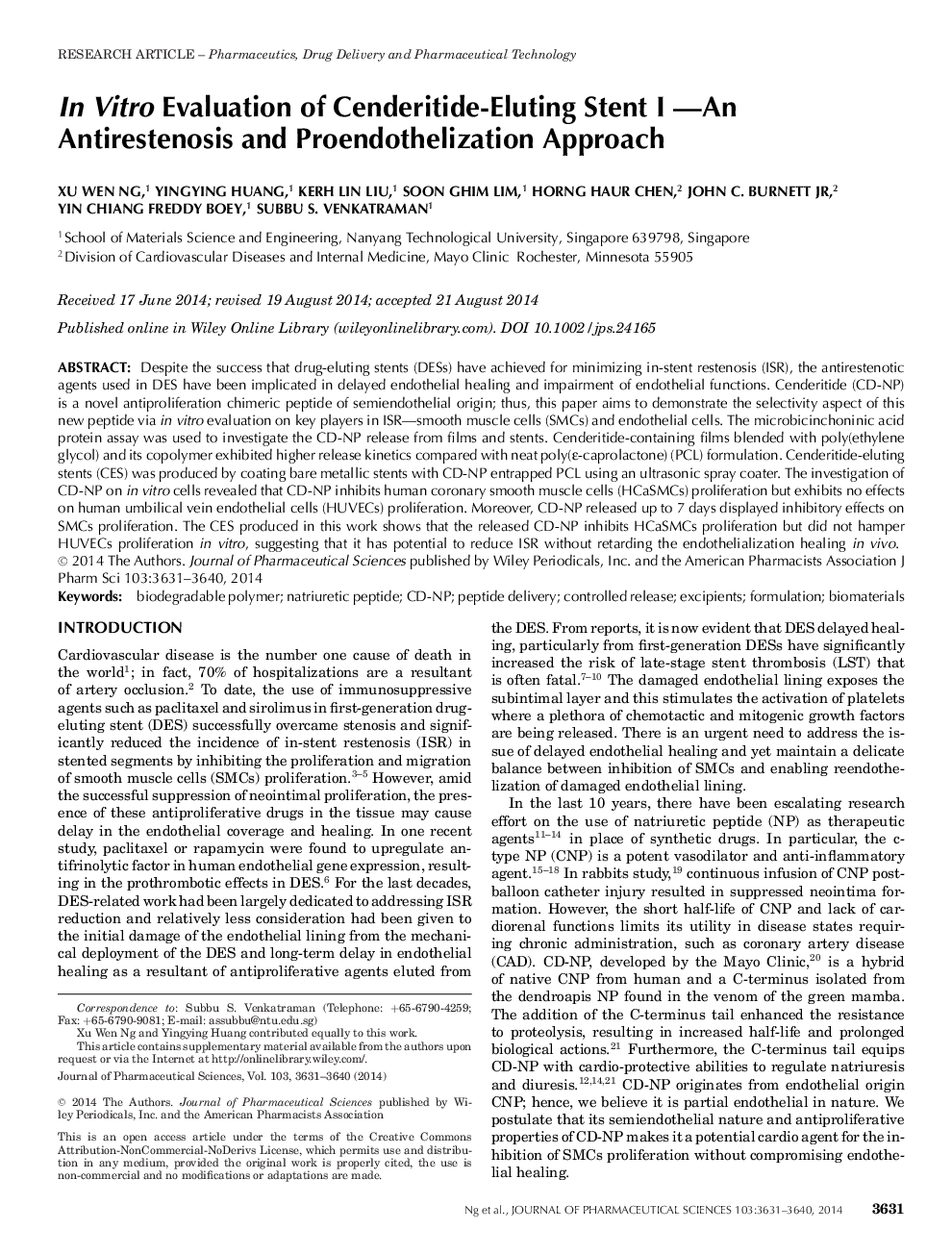| Article ID | Journal | Published Year | Pages | File Type |
|---|---|---|---|---|
| 10162270 | Journal of Pharmaceutical Sciences | 2014 | 10 Pages |
Abstract
Despite the success that drugâeluting stents (DESs) have achieved for minimizing inâstent restenosis (ISR), the antirestenotic agents used in DES have been implicated in delayed endothelial healing and impairment of endothelial functions. Cenderitide (CDâNP) is a novel antiproliferation chimeric peptide of semiendothelial origin; thus, this paper aims to demonstrate the selectivity aspect of this new peptide via in vitro evaluation on key players in ISR-smooth muscle cells (SMCs) and endothelial cells. The microbicinchoninic acid protein assay was used to investigate the CDâNP release from films and stents. Cenderitideâcontaining films blended with poly(ethylene glycol) and its copolymer exhibited higher release kinetics compared with neat poly(εâcaprolactone) (PCL) formulation. Cenderitideâeluting stents (CES) was produced by coating bare metallic stents with CDâNP entrapped PCL using an ultrasonic spray coater. The investigation of CDâNP on in vitro cells revealed that CDâNP inhibits human coronary smooth muscle cells (HCaSMCs) proliferation but exhibits no effects on human umbilical vein endothelial cells (HUVECs) proliferation. Moreover, CDâNP released up to 7 days displayed inhibitory effects on SMCs proliferation. The CES produced in this work shows that the released CDâNP inhibits HCaSMCs proliferation but did not hamper HUVECs proliferation in vitro, suggesting that it has potential to reduce ISR without retarding the endothelialization healing in vivo. © 2014 Wiley Periodicals, Inc. and the American Pharmacists Association J Pharm Sci 103:3631-3640, 2014
Keywords
Related Topics
Health Sciences
Pharmacology, Toxicology and Pharmaceutical Science
Drug Discovery
Authors
Xu Wen Ng, Yingying Huang, Kerh Lin Liu, Soon Ghim Lim, Horng Haur Chen, John C. Jr, Yin Chiang Freddy Boey, Subbu S. Venkatraman,
